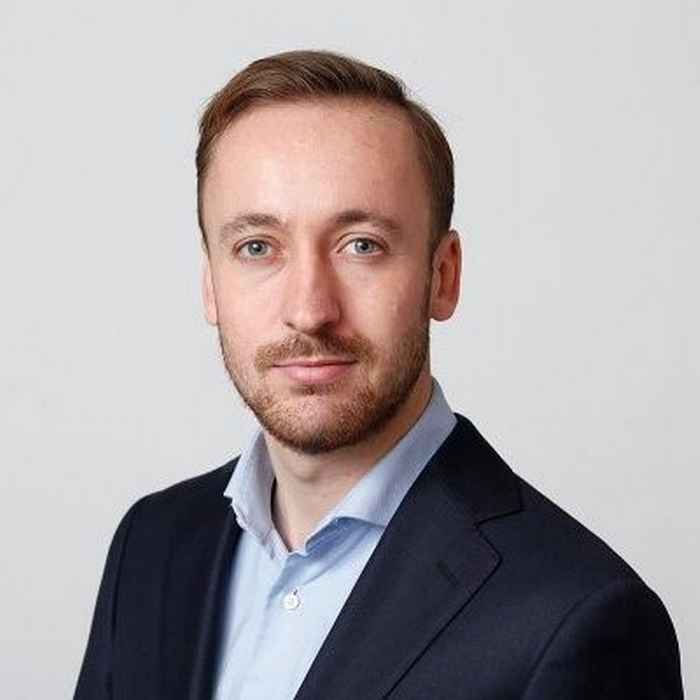'At the end of my Bachelor’s, I did an internship at the Clingendael Institute, where I subsequently remained'

What does your work entail?
'Clingendael is a think tank that monitors and interprets international developments in the field of politics and policy. As a researcher, I specifically focus on the EU enlargement policies in the Western Balkans, and the relations between the EU and countries to the east thereof. In practice, this means that I conduct research by collecting literature, conducting interviews and following the media, just like at the University. These studies usually result in a report or policy brief with specific recommendations for the Dutch government, for example, or the European Union. Furthermore, I am the secretary for the Russia and Eastern Europe Knowledge Alliance, a Dutch knowledge network of think tanks and universities which aims to collect the available knowledge about these regions and make it accessible to the government. In addition to research work, there are a number of other duties. For example, I regularly interpret news about the EU for newspapers, radio, and television, for example about Ukraine's application for membership of the EU. I also organise public and expert meetings, and I regularly speak at these meetings both in the Netherlands and abroad. Acquisition, thus bringing in new projects, and project management also fall under my duties.'
How did you navigate the job market after your studies?
'I got my job in quite a unique way, because I had already done an internship at Clingendael during my studies and stayed there after obtaining my degree. For an internship, I wanted to work on EU policy in terms of content, but preferably a bit closer to the policy world than a university. I therefore quickly ended up at Clingendael.'
Which of the skills that you learned during your studies do you use at work now?
'Initially, mainly research skills. These involve finding good sources, structuring research, and writing reports and papers. In addition, I have gained substantive knowledge during both my Bachelor's and Master's that still comes in handy, for example about the functioning of the EU and the history of European integration. Such basic knowledge is very important to be able to interpret new developments.'
What kind of practical experience did you gain during your studies?
'As an intern at Clingendael, I was already able to contribute to research on the developments in the relationship between Moldova and the EU, and on financial instruments of EU foreign policy. For this purpose, I also travelled to Brussels along with a colleague to conduct research interviews at the European Commission and EEAS. I did not gain any other practical experience during my studies, but I did take extra courses. In addition to my internship, I did an extra minor at the UvA in Macroeconomics, and after doing an elective in German as part of the European Studies programme, I took an extra German course at the Bachelor's in German programme. I also studied at the Humboldt University in Berlin within the context of the Erasmus exchange programme, where I attended courses on European history.'
Why do you think this degree programme is socially relevant?
'The Netherlands and the EU have faced a multitude of crises in recent years. The banking crisis, the migration crisis, Brexit, COVID-19 and now the Russian invasion of Ukraine all require European-wide answers and show the strong bonds of domestic and foreign policy. European Studies is the ideal study to make you aware of this and lays a strong foundation for tackling such issues. The study is therefore not only about Europe, but also about societal issues, just like those that also play a role in the Netherlands.'
Do you have a tip for students regarding the job market?
'I recently attended a conference where there were also a number of students who had won an essay competition and were allowed to participate as a 'prize'. A current intern in our team has also previously participated in an essay competition. So, that's a good way to put yourself in the spotlight. More generally, I would recommend trying to build a profile on a theme you are interested in already during your Bachelor's programme. This profile does not have to be too specific, but you can try to focus assignments for the study on one or two policy areas where possible. Taking part in extracurricular activities, such as being active at a study association, helps, but in my opinion the substantive profile ultimately is most important. Networking is definitely important too, and both Clingendael as well as other think tanks and universities organise many public lectures and events. This is usually interesting in terms of content, and at the same time a good opportunity to come into contact with, for example, policymakers, diplomats, researchers and politicians.'
Wouter Zweers, alumnus of European Studies, has been working at the Clingendael Institute in The Hague for 6 years now, currently as a Research Fellow in the EU & Global Affairs research unit.